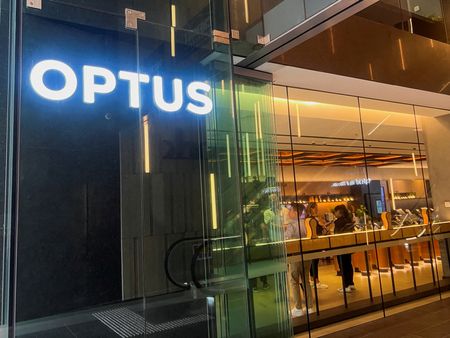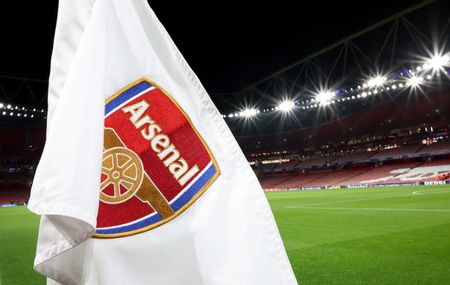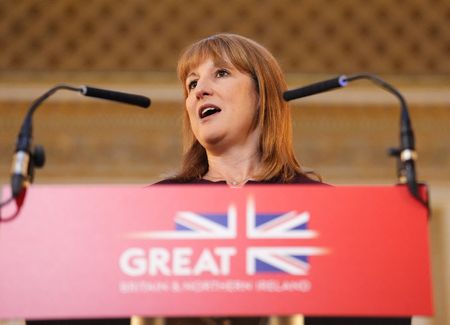By Amanda Cooper
LONDON (Reuters) – The pound headed for its biggest two-day drop since late July on Friday, while bond yields rose, after a surge in UK public borrowing and a Bank of England rate decision that laid bare the challenge for policymakers in balancing growth and inflation.
Official data on Friday showed public sector borrowing between April and August totalled 83.8 billion pounds ($113.39 billion), 11.4 billion pounds more than forecast by the Office for Budget Responsibility earlier this year.
The surge compounds the problem finance minister Rachel Reeves faces with her November budget, in which she had already been expected to announce new tax rises to stay on track to meet her fiscal rules and avoid unsettling financial markets.
“The pound has sunk on this data, and is testing support at $1.35, it is the second-worst performing currency in the G10 FX space today,” XTB research director Kathleen Brooks said.
Sterling fell 0.5% to $1.349. It has lost almost 1.1% in the last two days alone, the largest such decline since July 31.
The BoE left interest rates unchanged on Thursday as expected and opted to reduce the pace of its government bond sales to minimise the impact on the more volatile longer-dated section of the market.
With inflation running at nearly double the central bank’s 2% target, the BoE has only limited scope to lower rates much more to help shore up the economy, where evidence is mounting of weakness in the labour market.
UK bond yields rose on Friday, with long-dated 30-year gilts up 4.3 basis points at 5.547%, pushing the premium over long-term borrowing costs in the United States to the highest in three years.
“A combination of gilt market stress and reversals on welfare reform has used up the thin margin for error in the government’s current spending plans, meaning taxes will almost certainly need to rise if the fiscal rules are to be met,” Matt Swannell, who is chief economic advisor to the EY ITEM Club, said.
Data on Friday showed retail sales rose by more than expected in August, thanks to sunny weather, although sales growth in July was revised down.
Yet this offered little comfort to bruised UK bonds or the currency.
A number of major retailers, including Primark owner Associated British Foods and budget supermarket Aldi UK, have signalled concern about the outlook for consumer spending given upcoming tax rises and a deteriorating jobs market.
“This is yet another disappointing piece of economic news which will add to Chancellor Rachel Reeves’s woes. But as we saw yesterday, the Bank of England dare not cut rates given that inflation is nearly double the official target of 2%, and likely to rise further,” Trade Nation senior market analyst David Morrison said.
(Reporting by Amanda Cooper; Editing by Philippa Fletcher)











